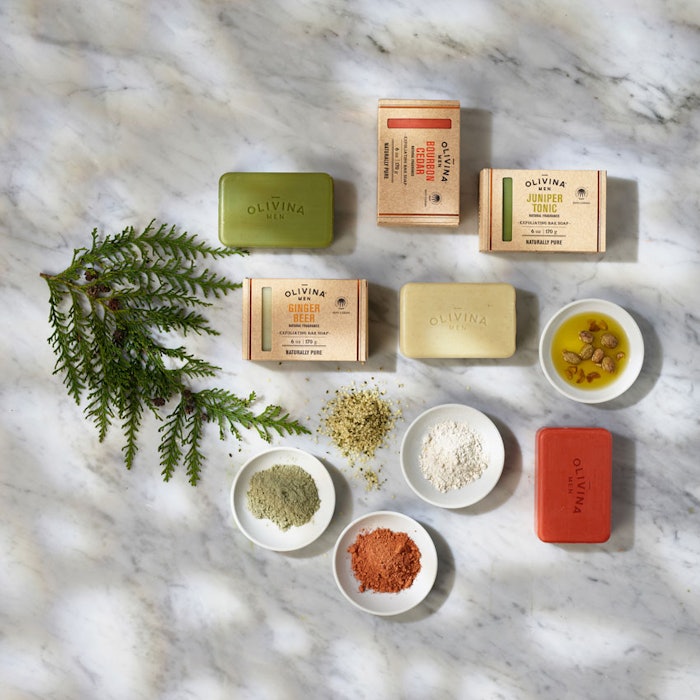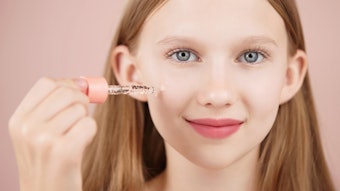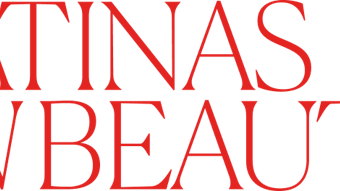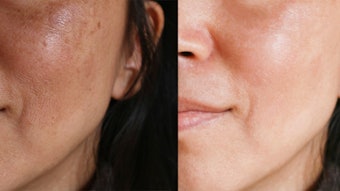
I first started writing about natural and organic personal care for Global Cosmetic Industry 13 years ago. Interestingly, some of the “drivers” for the popularity of natural personal care products I made reference to back then remain the same, i.e. health and wellbeing and a well-informed and discriminating consumer base.
A marked difference in today’s market is the rise of the millennial generation and their insatiable appetite for information on the products they are considering. Yes, they are as interested in health and wellness issues as their baby boomer and gen-X parents.
Natural and Organic Personal Care Market Data
Natural personal care (NPC) includes products used for personal health and hygiene such as body talc, body scrub, toothpaste, tooth brushes, tongue cleaners, tooth powder, bathing salts, bathing gel, body wash, essential oils, moisturizers, skin creams, face wash, hair oil, hair shampoo, hair conditioner, soap, and nail and cuticle care products.
Not too long ago you would be hard-pressed to find more than just a cursory mention of new natural personal care (NPC) products in beauty publications, and obtaining accurate and relevant data was scarce and inaccurate.
Close to 20% of all retail sales in the personal care category now come from the natural product side.
Today, there is no shortage of statistics with respect to the size and growth rate of the NPC market. For instance, Kline & Co. has forecasted the natural personal care market to be worth $46 billion by 2018. And Grand View Research has estimated that the organic personal care segment worldwide will total $25.11 billion by 2025. a
Meanwhile, Sundale Research has placed 2016 year-over-year growth of the U.S. NOPC (natural and organic personal care) sector at 8.5%, with a retail value of $16.5 billion.b Presuming that the total 2016 personal care product sales estimates of $85 billion hold up, close to 20% of all retail sales in the category now come from the NPC side. That compares to 10% in 2005.
From Niche to Big Business
The NPC industry has moved from niche and small to mass market and big. Part of this transformational shift is related to millennials demanding safer (or safer-seeming) products from their CPG companies. This has resulted in a flurry of acquisition activity as CPG companies try to react quickly to consumer desires and acquire as many “green” brands as possible.
A good example is Unilever, which recently purchased Seventh Generation for a reported $700 million. It was also rumored that Unilever was in discussions with natural lifestyle player The Honest Company.
Enhanced Scrutiny
Simultaneously, the growth and relevance of new technologies (smart phone apps) provides consumers with tools to fully research the ingredients and CSR practices of brands while strolling down the aisle of their favorite store.
One application, SmartLabel, tells consumers what an ingredient is, why it’s in the product, what it does and, often, where it comes from. Similarly, The Environmental Working Group (EWG), a non-profit, non-partisan organization that is a strident opponent of the conventional personal care and beauty industry, has developed a “Healthy Living” app for smart phones. The app allows consumers to review the organization’s ratings of 120,000 food and personal care products.
Consumers' "right to know" has also been fueled by their direct engagement with brands via social media.
Product safety, or the appearance of safety, is the driver toward increased transparency. CPG companies have evolved from “trust me, the product is safe,” to virtually full disclosure in a few short years because of pressure from non-governmental organizations like the EWG.
Consumers’ “right to know” has also been fueled by their direct engagement with brands via social media. Every brand manager is dialed into these comments, which can appear on the company or brand websites, social media presences, or influencer blogs dedicated to NPC discussions.
Using Transparency to Build a Brand
Many brand managers are now using social media as a tool/vehicle for collecting raw and often insightful evaluations of their brands that can be applied to their brand strategies. One such brand is Olivina.
Karyn Trumbach, director of product development/brand management for Olivina, has a strong background in NPC development from her 17 years at Aubrey Organics. She wore two hats at the latter brand, one as the lab director and formulator and the second as product development manager.
Trumbach had been following NPC social media feeds and recognized a consistent message: men are growing more facial hair, and they are more inclined to want to research and purchase their own personal care products.
Inspired by the craft cocktail tradition of Olivina's Nashville headquarters, the signature items are scented like bourbon, mixed with cedar and vanilla.
Around the same time, Trumbach met Joseph Moore, president and chief executive officer of DesignWorks Investments, Olivina’s parent company. C Moore felt that the men’s natural segment “has been terribly underserved,” with too few great options. He and Trumbach shared a belief that whitespace existed for an accessible, relevant men’s grooming line that also met the market’s natural and organic demands.
It was Trumbach’s formulation background that helped fast-track the project, which she began shortly after joining Olivina in January of 2016. The result was a vintage-look natural men’s line that launched on October 26, 2016. The line includes Hair, Face and Body All-in-One Wash; Rinse Out/Leave-In Conditioning Cream; USDA Organic 2-in-1 Shave Prep and Beard Oil; Flash Foam Shave Cream; Exfoliating Soap Bar; Aluminum Free Deodorant; Natural Fragrance Cologne; USDA Organic Olive Oil Lip Balm in Bourbon Vanilla, Ginger Citrus and Juniper Mint; and USDA Organic Restorative Hand Rescue. Natural 100% soy wax candles, in three natural fragrances round out the range.
Inspired by the craft cocktail tradition of Olivina’s Nashville headquarters, the signature items are scented like bourbon, mixed with cedar and vanilla. Prices range from $4 to $40.
Inside the Mind of the Modern Male
“Millennial’s preferences are driving the uptick in personal grooming trends,” said Trumbach. “They want a classic, streamlined approach to grooming, as well as a luxury experience.”
When creating the Olivina line, Trumbach ultimately considered the ingredient quality first and foremost: “The fragrances had to be stunning, and meet high-quality standards—no phthalates or parabens, and only natural origins, especially since transparency is a major concern of the modern male customer. We found amazing natural, yet designer-quality, fragrances that suit our customer perfectly.”
"Millennial's preferences are driving the uptick in personal grooming trends...They want a classic, streamlined approach to grooming, as well as a luxury experience."
Along with its signature Bourbon Cedar craft cocktail-inspired fragrance, Olivina’s 2017 product launches will include Juniper Tonic and Ginger Beer scents.
“Having a great partnership with our fantastic perfumers made this project so much fun,” said Trumbach. “What can I say—I love the ginger citrus smell and taste of a good Moscow Mule. And this Ginger Beer fragrance is spot-on. And now I get to wash my hair with it!”
Staying Tuned-in
As the NPC market evolves, it is critically important that brand managers remain dialed into all trends affecting the PC market. Because although the world continues to embrace a “green” lifestyle, the NPC market remains heavily influenced by the marketing and product introductions of the largest PC brands, which do not necessarily embrace or emphasize natural as part of their marketing or brand identity.
Jack Corley is president of Custom Essence Inc.’s natural fragrance division. He is a member of the Natural Product Association Personal Care and Home Care Standards Committees, and a Joint Committee member of the NSF-305 task force.
Footnote:
a) www.klinegroup.com, www.grandviewresearch.com
b) www.sundaleresearch.com
c) DesignWorks Investments is also the parent company of Paddywax, Vineyard Hill Naturals and DesignWorks Ink.











